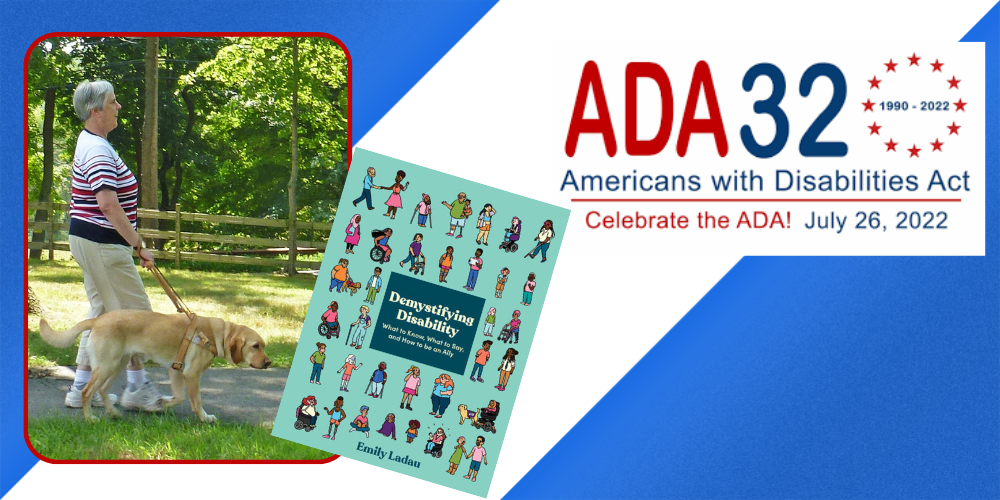Are We There Yet?
Katherine Schneider, PhD, a retired clinical psychologist and Benetech Board member, reflects on the successes and shortfalls of accessibility as the ADA turns 32
I’m often asked: “Is accessibility getting better?”
The Americans with Disabilities Act is 32 years old on July 26, and people wonder if we have achieved equal access. I’d say: yes and no.

For example:
- Wordle was made accessible to screen reader users, but when the New York Times upgraded it, the accessibility went away. I had to get a volunteer coder to fix it, which he graciously did.
- The new national crisis line, 988, is “working on” providing American Sign Language service in addition to Spanish, Hmong, etc.
- I read about blind-friendly COVID tests, so of course I had to get some. If you have a smartphone and can see a green light to tell if it’s blinking or solid, you can use it. Low-vision-friendly, maybe; blind-friendly, not!
- My guide dog and I are usually welcomed in public places and on public transportation, but we still occasionally run into attempted denials of service. Sometimes it gets tricky, like when a taxi zooms by and doesn’t pick us up. My guide dog is great, but can’t read license plate numbers.
- When websites are made accessible to screen readers, and libraries provide more electronic resources, my choices of reading material multiply. I love to read the newest bestsellers the day they become available.
Law Mandates Access, Humans Make it Work
As the foregoing examples show, the law can mandate access, but it’s humans who make it work or not. When ADA Day comes around each year, I like to publicly celebrate it to remind people that we are in this together, and disability is a joinable minority group. What you do today to support my access may come back to help you if you develop a disability. Half the population over 65 has one!
If you want to be an awesome ally, ask “May I help? If so, how?” kinds of questions, listen to the answers, and help amplify the voice of the person with the access need without speaking for them, unless requested to do so. Also, make sure things you’re in charge of are accessible. Describing that Facebook picture – “Look at the chocolate cake I just baked” – instead of “Look at this” makes your blind friends feel included and takes just a few seconds.
Celebrating the Victories
I’m celebrating the ADA by helping lead a discussion at my public library on Emily Ladau’s excellent book, Demystifying Disability (available in Bookshare). I may also be pictured in collages on the Great Lakes ADA website and the Wisconsin Department of Health Services website. I’ll attend a county meeting by Zoom instead of in person because of an ADA accommodation. I’ll play Wordle and take a celebratory walk with my guide dog. I’ll continue on with whatever advocacy opportunities the day brings me. As Amanda Gorman said in her poem, “Hymn for the Hurting,” We must triumph or try.
